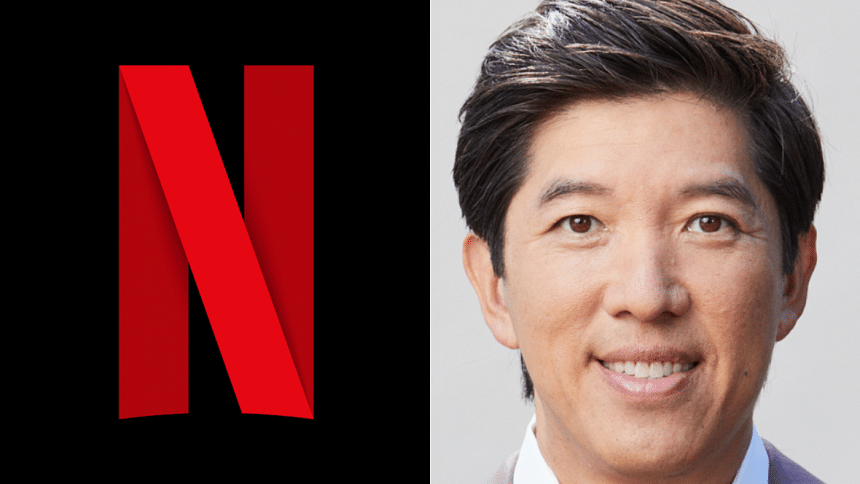Netflix's new film boss likely to make more movies worth watching

In 2022, Dan Lin, known for producing "The Lego Movie" and "It," was in discussions to assume the leadership role at DC Studios. This presented a unique chance to revitalize the company responsible for iconic superheroes like Superman and Batman. However, negotiations fell through. One reported factor was the inability of David Zaslav, head of DC's parent company Warner Bros Discovery, and Lin to reach an agreement on suitable compensation for Lin's departure from his production company Rideback to take on the new role.
What prompted Lin to shift to a new corporate role, leading Netflix's film division, less than two years later? Additionally, what hurdles must he tackle if Netflix aims to enhance the caliber of its movie productions?
For Lin, Netflix presents a significant advantage with its extensive consumer base, surpassing competitors like Max or Disney+. Furthermore, Netflix boasts greater stability compared to other media companies. While its stock experienced a sharp decline due to Wall Street's cautious outlook on streaming economics, it hasn't plummeted to the extent seen with Warner Bros Discovery, Disney, or Paramount Global, according to Variety.
Joining Netflix offers Lin a rare opportunity to shape the future of the film industry, particularly at a time when traditional movie studios are striving to reconnect with their audience. With streaming becoming the predominant method for consuming movies, Netflix holds a distinct advantage over its numerous rivals in attracting customers.
Many within the industry were taken aback by Lin's decision to step away from Rideback, his 16-year-old brainchild responsible for hits like "Aladdin" and the "Sherlock Holmes" film series featuring Robert Downey Jr. Netflix isn't acquiring Rideback; it will continue producing movies without its founder, with executives Jonathan Eirich and Michael LoFaso serving as co-CEOs. While Netflix is known for offering generous compensation packages to its executives, the high-profile nature of Lin's new role means he will face heightened scrutiny. This increased visibility may result in more intense scrutiny and pressure.
Netflix's Chief Content Officer Bela Bajaria, to whom Lin will report, evidently believed that Lin's track record of creating successful film franchises from diverse source material, such as toys ("The Lego Movie"), murderous clowns (Stephen King's "It"), and 19th-century detectives ("Sherlock Holmes"), was precisely what the streaming platform required. Bajaria acted swiftly, announcing Lin's appointment just over a month after former film chair Scott Stuber resigned in late January.
According to sources close to Lin, he perceived an opportunity to replicate the dynamic of Rideback within Netflix. This entails producing high-profile, filmmaker-driven films from established masters while also mentoring a new wave of filmmakers. Some industry insiders even speculated whether Lin's acceptance of the film chief role at Netflix positions him for potentially larger responsibilities at the streaming service in the future.
As a producer, Lin has demonstrated a remarkable ability to identify unlikely material with franchise potential. For instance, before "The Lego Movie," the titular brick toys didn't appear to offer substantial narrative possibilities. However, Lin and his creative team ingeniously utilised them to craft a series of films that balanced humour and heart, appealing to both parents and children alike. In "Sherlock Holmes", Lin reimagined the iconic detective as a steampunk brawler, enlisting Guy Ritchie to give the character a gritty makeover.
Moreover, Lin tackled the challenge of adapting Stephen King's sprawling novel "It", which had previously thwarted attempts to bring it to the screen. The 2017 reboot became King's most commercially successful movie by remaining faithful to the source material and splitting it into two stories. The success of the films led to the creation of a prequel TV series titled "Welcome to Derry". Lin's knack for identifying and transforming unconventional material into successful franchises underscores his prowess as a producer.
Furthermore, Lin is known for his frugality, a quality that Netflix is likely to appreciate as all media companies grapple with tightening budgets. For instance, "The Lego Movie" was produced for approximately $60 million, while "It: Chapter One" had a modest budget of $35 million. Lin's versatility is also noteworthy, as he has experience producing a wide range of films, from summer tentpoles to big family animations and prestige dramas. He collaborated with Netflix on the Oscar-nominated "The Two Popes".
Despite being an entrepreneur for a significant period, Lin is not new to working as an employee in larger organisations. Before establishing Rideback, he spent eight years at Warner Bros as Senior VP of Production, contributing to projects like Martin Scorsese's "The Departed". This blend of entrepreneurial spirit and corporate experience positions Lin well for his new role at Netflix.

 For all latest news, follow The Daily Star's Google News channel.
For all latest news, follow The Daily Star's Google News channel. 




Comments